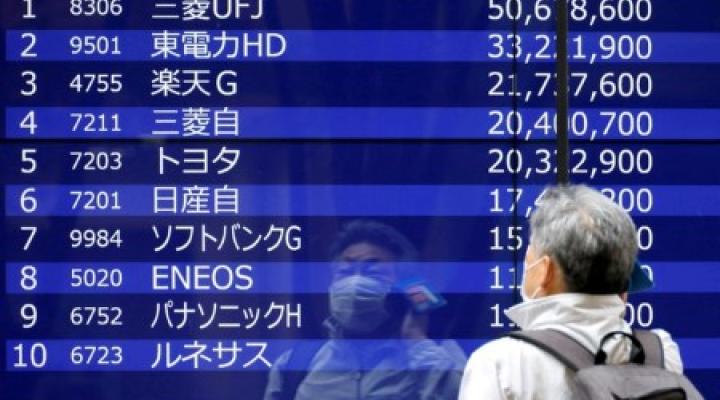The exporter-heavy Nikkei 225 share average in Japan rose sharply on Monday as a result of the yen’s decline to its weakest level in over a year and the fact that the United States avoided a government shutdown.
The decrease in crude prices last week affected Australia’s oil and resource equities, while the rest of the region’s equity markets remained neutral.
Market closures in Hong Kong and mainland China, which have both been closed since Friday for the Golden Week holiday that will last until the end of this week, both reduced trading.
The Nikkei surged to be 1.6% higher as of 0100 GMT, recovering from the end of last week, when it had reached its lowest level in more than a month.
In response to the S&P 500’s 0.3% decline on Friday, U.S. stock futures increased by 0.6%, suggesting a recovery.
The government was able to continue running through November 17 thanks to the weekend’s last-minute emergency financing deal, which also ensures that important data releases, such as Friday’s monthly payrolls report, may occur as scheduled.
The strategists at TD Securities stated in a client note that “the shutdown risks are only delayed, not eliminated.”
While “market volatility is likely to remain elevated as investors wait for the next catalyst, which is likely to be top-tier data,” a feeling of less uncertainty “is likely to drive a small relief in markets.”
The Bank of Japan’s quarterly Tankan survey, which revealed an uptick in business morale, also helped lift Japanese markets.
At the same time, the yen declined on Monday to 149.74 per dollar, its lowest level since October 21, as the wider advance in the dollar index paused after climbing to a 10-month high last week.
When corporate earnings are repatriated, a weaker yen enhances those earnings.
The atmosphere was more subdued in other parts of the area. The benchmark stock index for Australia dipped 0.05%, while the Kospi in South Korea increased by 0.1%.
Australian investors were on edge ahead of the Reserve Bank’s policy announcement on Tuesday—the first under new governor Michele Bullock—adding to the pressure on shares of energy and other resources.
On Wednesday, the central bank of New Zealand sets its stance. The national stock index decreased by 0.5%.
Despite recent indications that China, a significant trading partner, may be stabilising its economy, declines in Antipodean equities occurred. A day after official data showed the first expansion in six months, a private indicator of manufacturing activity in data over the weekend surprisingly dropped but remained in expansionary zone.
A small portion of the 1% decline in crude oil on Friday was made up as a result of the good news coming out of China and the United States.
After dropping 90 cents at the end of the previous week, the price of Brent December oil futures increased 18 cents, or 0.2%, to $92.38 a barrel. West Texas Intermediate crude for the United States increased by 23 cents, or 0.3%, to $91.02 per barrel.

